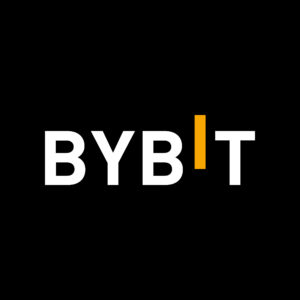[#title_feedzy_rewrite]
The altcoin market cap is $1.89 trillion, which is not much less than Bitcoin’s $2.11 trillion. Altcoins are divided into various categories like AI tokens, DeFi coins, Real-World Assets (RWAs), smart contracts, stablecoins, and more. If you’re looking to invest in these growing sectors, you need one of the best altcoin exchanges.
An altcoin exchange is a platform where you can trade or buy alternative cryptocurrencies beyond Bitcoin. In this guide, we will review the 8 best altcoin exchanges to trade and buy a variety of altcoins in 2025.
Best Exchanges to Trade Altcoins: Our Top Picks
- Binance: Overall best Altcoin exchange
- Bybit: Best for Altcoin derivatives trading
- OKX: Best for margin trading
- MEXC: Best for buying Altcoins with low fees
- Bitget: Best for Altcoin copy trading
- KuCoin: Best for beginners
- Coinbase: Best Altcoin exchange in the U.S.
- Uniswap: Best decentralized exchange for Altcoins
8 Best Altcoin Exchanges Reviewed
Binance: Overall best Altcoin exchange

Binance is the best altcoin exchange, offering 350+ popular altcoins, low fees, and a range of trading options. Founded in 2017 by Changpeng Zhao, it has quickly become one of the largest crypto exchanges globally by trading and liquidity.
When it comes to fees, Binance is known for being cost-effective. The platform charges a standard trading fee of 0.1% per transaction. If you opt to pay fees using Binance’s own token, BNB, you can enjoy a 25% discount, bringing the fee down to 0.075%.
Binance offers various trading options such as spot trading for instant buying and selling, margin trading, 125x perpetual futures contracts, and zero fees altcoin-to-altcoin conversion. Plus, Binance has also developed its own blockchain, known as BNB Smart Chain. This technology is recognized for its speed and low transaction costs.
| Founded | Supported Altcoins | Trading Fees | Fiat Payments |
| 2017 | 350+ | 0.1% maker/taker | Bank transfers, card channels, or e-wallets |
Pros
- Access to over 350 altcoins for trading
- A standard trading fee of 0.1%, with a 25% discount when using BNB
- Offers spot, margin, and futures trading
- Large trading volumes ensure ease of transaction execution
- Beginner-friendly interface and mobile app
Cons
- Faces legal issues in multiple countries
- U.S. residents have access to a restricted version, Binance.US, with fewer features
Bybit: Best for Altcoin derivatives trading

Bybit is one the best altcoin derivatives exchange. Right now, Bybit supports over 1,620 altcoins. The fees on Bybit are also quite competitive. For spot trading, you’ll pay 0.1% for both maker and taker fees. If you’re more into derivatives trading, the fees drop to 0.02% for makers and 0.055% for takers. That’s cheaper than what a lot of other exchanges charge, making Bybit a pretty cost-effective option.
Bybit offers plenty of options like spot trading, futures, and even copy trading. If you’re new to crypto, copy trading lets you follow and mimic the strategies of successful traders, which can be a big plus. For the more experienced crowd, Bybit’s advanced tools—like limit orders and its smooth trading interface – help you execute trades exactly how you want. They even have an Earn feature where you can stake or invest your crypto to make passive income.
Bybit does have some downsides. If you’re in the United States, for example, you can’t use Bybit due to regulatory restrictions. And while their fees are competitive for trading, withdrawal fees for some coins can feel a bit high.
| Founded | Supported Altcoins | Trading Fees | Fiat Payments |
| 2018 | 1620+ | 0.1% maker/taker | Bank cards, SEPA, iDEAL, FPS, and more |
Pros
- Over 1,620 altcoins to trade
- Low trading fees, 0.1% for spot, as low as 0.02% for derivatives
- Advanced tools for pros and simple options for beginners (like copy trading)
- Strong security features including 2FA and cold storage
Cons
- Not available in the U.S. and a few other regions
- The network withdrawal fee is high compared to Binance
OKX: Best for margin trading

OKX is one of the top cryptocurrency exchanges you can use to trade altcoins. It was launched in 2017 and has quickly become popular among traders. The platform supports over 350 different cryptocurrencies, which gives you plenty of options to trade. So, if you’re looking for well-known altcoins or hidden gems, OKX likely has what you need.
You can do spot trading, margin trading, and even futures trading. They also have tools like stop-loss and limit orders to help you manage your trades better. These tools can be handy, especially if you want to reduce risks and lock in profits.
When it comes to fees, OKX keeps things competitive. The basic maker fee starts at 0.08%, and the taker fee begins at 0.1%. However, the platform uses a tiered structure where your fees can get lower as you trade more. If you’re a casual trader, you might not feel much difference, but for high-volume traders, these reductions can save a lot.
The platform is also easy to use once you get the hang of it, but it can seem complex at first, especially if you’re new to crypto trading. That said, OKX offers helpful tutorials and market analysis, which makes learning a bit easier.
| Founded | Supported Altcoins | Trading Fees | Fiat Payments |
| 2017 | 350+ | 0.08% maker and 0.1%taker | Bank transfers, Visa and Mastercard debit cards, and e-wallets |
Pros
- It supports 350+ cryptocurrencies
- Offers spot, margin, and futures tradings
- Competitive fees that get lower with high trading volumes
- Strong security features like 2FA and biometric scanning
- Tutorials and analysis to help you improve your trading skills
Cons
- It doesn’t let you directly withdraw crypto into fiat (like your bank)
- Customer support could be better in terms of speed and quality
MEXC: Best for buying Altcoins with low fees

MEXC is another popular exchange for altcoins. It supports a vast number of altcoins, with over 2,900 cryptocurrencies available on the platform. One of MEXC’s standout features is its no-KYC trading option. You can start trading altcoins without submitting personal details, and you can withdraw up to 10 BTC without completing KYC. This is perfect if you value privacy while trading.
When it comes to fees, MEXC is among the lowest fee exchanges. For perpetual contracts, you pay 0% maker fees and only 0.02% taker fees. This low fee structure helps you save money, especially if you trade often. On spot trading, MEXC also offers low fees of 0.05% maker/taker compared to other exchanges.
MEXC has a variety of options for trading altcoins. You can trade spot, futures, and perpetual contracts with leverage. For futures trading, MEXC allows up to 200x leverage. MEXC also has deep liquidity for altcoins, which means you can easily buy or sell large volumes without price slippage. The platform also hosts trading competitions and promotions, where you can win rewards and bonuses.
| Founded | Supported Altcoins | Trading Fees | Fiat Payments |
| 2017 | 2900+ | 0.05% maker/taker | Credit cards and third-party like Banxa, Moonpay, and Mercuryo |
Pros
- Supports 2,900+ altcoins for trading
- No-KYC trading with withdrawals of up to 10 BTC
- 0% maker fees and 0.02% taker fees for perpetual contracts
- Up to 200x leverage for futures trading
- User-friendly platform with a mobile app
Cons
- Not suitable for those who prefer fully regulated exchanges
- No fiat-to-crypto support for beginners
Bitget: Best for Altcoin copy trading

Bitget is one of the leading altcoin exchanges out there, especially for copy traders. If you’re someone who likes exploring different altcoins, Bitget might be exactly what you’re looking for. Launched in 2018, the platform has grown rapidly, offering over 1240 cryptocurrencies to trade.
Bitget also offers the best copy trading portal. It allows you to copy the strategies of experienced traders in real-time. It’s a great feature if you’re new to crypto or simply want to save time. You can pick skilled traders, follow their moves, and hopefully see your portfolio grow alongside theirs.
Spot trading fees are just 0.1% for makers and takers. If you use BGB, their native token, you get a 20% trading fee discount, bringing the fee down to 0.08%. Futures trading is even more competitive with fees of 0.02% for makers and 0.06% for takers. Depositing crypto is also free.
Besides spot trading, there’s margin trading with up to 10x leverage and futures trading that goes all the way up to 125x leverage. It also supports P2P (peer-to-peer) trading, where you can buy and sell crypto using over 140 fiat currencies.
| Founded | Supported Altcoins | Trading Fees | Fiat Payments |
| 2018 | 1240+ | 0.1% maker/taker | Visa and Mastercard, UPI, bank account, and more |
Pros
- Supports 1240+ cryptocurrencies for altcoin trading
- Copy trading lets you follow professional traders easily
- Competitive trading fees – only 0.1% for spot trading
- High leverage options, up to 10x for margin and 125x for futures
- Strong security with a $400 million Protection Fund
Cons
- Not available in the U.S. and some other regions
- Some might find the exchange’s regulatory status concerning
KuCoin: Best for beginners

KuCoin is one of the best sites to trade altcoins, especially for beginners due to its easy-to-use interface. Launched in 2017, this exchange has quickly become popular for its huge selection of altcoins. In fact, you’ll find more than 700 different cryptocurrencies here.
It also has some best features like trading bots. These bots help you automate your trading strategy so you don’t have to stare at the screen all day. If you want to earn passive income, KuCoin allows you to stake your altcoins or lend them out to earn rewards. KuCoin has one of the lowest trading fees in the market. For spot trading, both buyers and sellers pay just 0.1%. If you hold KuCoin’s token, KCS, you get extra discounts on fees, which is a great bonus.
KuCoin protects your account with two-factor authentication and anti-phishing features. Still, some users have reported slow customer support during issues like withdrawals. So, you might need a little patience if things don’t go smoothly.
| Founded | Supported Altcoins | Trading Fees | Fiat Payments |
| 2017 | 700+ | 0.1% maker/taker | Bank Card, PayPal, Advcash, UPI, and more |
Pros
- Over 700 cryptocurrencies available for trading
- Low trading fees – starting at 0.1%
- Discounts if you hold KuCoin’s KCS token
- Advanced tools like trading bots and futures
- Extra features like staking and lending for passive income
Cons
- Not available and licensed in the U.S.
- Hacking issues have been reported in 2020
Coinbase: Best Altcoin exchange in the U.S.

Coinbase is one of the most popular altcoin exchanges, especially for those in the U.S. What makes it so appealing is how easy it is to use. Seriously, the interface feels almost too simple, which is great if you don’t want to spend hours figuring things out. But beyond that, Coinbase packs a lot of features, making it a solid place for trading altcoins.
Let’s talk about the variety of altcoins available. You’ll find some of the most well-known ones here, like Ethereum (ETH), Solana (SOL), Litecoin (LTC), and many others. Coinbase continues to add new altcoins regularly, which means more options for you to diversify your portfolio.
Fees are something you’ll need to keep in mind, though. Coinbase uses a maker-taker fee model. For smaller trades, the fees can be a bit high. As a maker, you’ll pay between 0.00% to 0.40%, and as a taker, it goes up to 0.60%. Coinbase also offers advanced features through Coinbase Advanced Trade. It’s a great option for people who need detailed charts and real-time data to make trading decisions. But if you’re looking for extra perks, you can subscribe to Coinbase One. This subscription costs $29.99 a month and offers zero trading fees (up to a limit) and priority customer support.
| Founded | Supported Altcoins | Trading Fees | Fiat Payments |
| 2012 | 200+ | 0.4% maker and 0.6% taker | ACH, Wire Transfer, Debit Card, SEPA, etc. |
Pros
- It’s beginner-friendly, easy, and simple to use
- Trade 200+ popular altcoins, with new ones added often
- U.S. licensed and fully regulated under FinCEN
- Zero fees and priority support with Coinbase One
Cons
- High fees, can get expensive if you’re trading low volumes
- Strict compliance sometimes means longer verification and account freeze issues
- Issues regarding slow and disrespectful customer support team
Uniswap: Best decentralized exchange for Altcoins

Uniswap is one of the most popular decentralized exchanges (DEX) where you can trade a huge variety of altcoins without relying on a central authority. If you’re into tokens on Ethereum or other EVM-compatible chains, this platform is a go-to option. Why? It supports over 11 blockchains, and you can swap millions of tokens easily. Plus, there’s no need for KYC – just connect your wallet, and you’re good to go. This makes it a favorite for traders who value privacy and freedom.
Uniswap runs on a tiered fee system, offering options of 0.05%, 0.3%, or 1% per trade, depending on the pool you use. These fees go to liquidity providers who keep the markets running. The trade-off, however, is gas fees. Since it operates on Ethereum and other EVM-compatible chains, network congestion can make transactions expensive, especially during high activity.
The platform is incredibly simple to use. Swapping tokens, exploring liquidity pools, or just experimenting with DeFi for the first time, Uniswap’s clean and easy interface will feel intuitive. Also, you don’t deposit funds into the platform; you trade directly from your wallet, which is great for self-custody users.
| Founded | Supported Altcoins | Trading Fees | Fiat Payments |
| 2018 | Millions of new tokens | 0.3 per trade generally | Credit card, debit card, or bank transfer |
Pros
- Trade millions of tokens across 11+ blockchains
- No-KYC, start trading instantly without identity verification
- User-friendly interface for beginners
- Trade directly from your wallet (no deposits)
- Perfect for discovering new altcoins early
Cons
- High gas fees during busy times
- Impermanent loss for liquidity providers
- Limited to Ethereum-compatible tokens
- Large trades can experience slippage
Best Altcoin Exchanges Comparison
| Exchange | Altcoins Available | Trading Fees | Trading Volume | KYC Required |
| Binance | 350+ | 0.1% (0.075% with BNB discount) | Very High | Yes |
| Bybit | 1620+ | 0.1% (Spot), 0.02%-0.055% (Derivatives) | High | Yes |
| OKX | 350+ | 0.08% (Maker), 0.1% (Taker) | High | Yes |
| MEXC | 2900+ | 0.05% (Maker/Taker) | Medium | No (Up to 10 BTC withdrawal) |
| Bitget | 1240+ | 0.1% (0.08% with BGB discount) | Medium | Yes |
| KuCoin | 700+ | 0.1% (Lower with KCS discounts) | High | Yes |
| Coinbase | 200+ | 0.4% (Maker), 0.6% (Taker) | Very High | Yes |
| Uniswap | Millions of tokens | 0.3% per trade (varies by pool) | Medium | No |
How to Choose an Exchange to Buy and Sell Altcoins?
Trading Fees
Nobody wants to spend extra money on fees. Most altcoin exchanges charge fees for trades, and these can vary a lot. Some, like Binance, charge just 0.1% per trade, while others, like Coinbase, can charge up to 0.6%.
It’s smart to choose an exchange with lower fees, especially if you are an altcoin day trader. Some platforms also offer discounts if you trade in high volumes or use their native token to pay fees. Compare a few cryptocurrency exchanges to see where you can save the most.
Security
Your funds’ safety should always come first. Look for altcoin exchanges with strong security features like two-factor authentication (2FA), encryption, PoR data, anti-phishing code, address whitelisting, and cold storage for your assets. This ensures hackers cannot easily access your funds.
You should also check if the exchange complies with regulations in your country. A regulated platform gives you extra peace of mind. Take your time to research reviews to see how well an exchange has handled security breaches, if any in the past.
Supported Altcoins
If you already know the coins you want to trade, make sure the exchange supports them. Not all platforms have the same variety. For example, MEXC has over 2,900 altcoins, while Coinbase offers just over 200.
Let’s say, if you’re someone who loves exploring lesser-known coins, an exchange with a broader range will suit you better. You don’t want to go through the trouble of signing up only to find your preferred coins aren’t available.
Accessibility
How easy is it to use the altcoin exchange? If you’re new to crypto, a simple interface is a must. Some altcoin trading platforms offer mobile apps, so you can trade anywhere.
Also, make sure the exchange operates in your country and supports your preferred fiat currency. You don’t want to face restrictions after registering. Accessibility also includes deposit and withdrawal options. If your bank or credit card isn’t supported, it could be inconvenient for you to start crypto trading.
Trading Volume and Liquidity
High trading volume means you can buy or sell altcoins quickly without impacting the price too much. The best altcoin exchanges like Binance and Coinbase are great because they have a lot of users and high liquidity. According to CMC data, they both handle over $40 billion in daily trading volume.
This is especially helpful if you’re trading larger amounts. You don’t want to be stuck waiting hours or days to complete a trade. Before choosing, check the daily trading volume of the exchange to get a sense of its liquidity.
Payment Methods
Different altcoin cryptocurrency exchanges accept different payment options. Some accept bank transfers, credit cards, or even PayPal, while others may stick to crypto-only payments, like MEXC.
Think about what works best for you. If you want a quick setup, credit card payments might be the easiest. However, watch out for extra fees on some payment methods. Always check the charges for deposits and withdrawals to avoid surprises later.
Customer Support
Good customer support can save you from big headaches. If something goes wrong with a trade or withdrawal, you’ll need a responsive team to help.
You can look for exchanges with live chat or 24/7 support. It’s also a good idea to read reviews to see how well they resolve issues. If an exchange doesn’t have proper customer service, you might find yourself stuck when problems arise.
Altcoin Exchange Fees to Consider
Trading Fees
Trading fees are charges applied when you buy or sell cryptocurrencies on an exchange. These fees are typically calculated as a percentage of the transaction value and can vary between exchanges.
For example, Binance charges a maker fee of 0.1% for traders with less than $1,000,000 in monthly trading volume, decreasing to 0.01% for those with over $4 billion in trading volume.
Deposit Fees
Deposit fees are charges incurred when adding funds to your altcoin exchange account. These fees can vary depending on the deposit method used. Some exchanges offer free deposits for certain methods, while others may charge a fee. Generally, credit card payments have high fees, whereas bank transfers are free.
Withdrawal Fees
Withdrawal fees are charges applied when you transfer funds from your exchange account to an external wallet or bank account. These fees can vary based on the cryptocurrency being withdrawn and the associated network fees. Some exchanges may offer lower withdrawal fees for certain cryptocurrencies or during specific promotions.
Spread
The spread is the difference between the buying price (also called the ask price) and the selling price (the bid price) of a cryptocurrency on an exchange. This difference can impact your profits because you buy at a slightly higher price and sell at a lower one.
Spreads are influenced by market conditions like liquidity and volatility. For example, popular cryptocurrencies with high trading activity usually have smaller spreads, making trades cheaper. Again, less traded or volatile coins often have wider spreads, which can cost you more.
What is an Altcoin Exchange?
An altcoin exchange is a platform where you can buy, sell, or trade cryptocurrencies other than Bitcoin. Altcoins are any digital coins besides Bitcoin, like Ethereum, Ripple (XRP), or Dogecoin. These platforms give you access to thousands of altcoins, allowing you to diversify your crypto investments.
For example, if you want to trade Ethereum (ETH) for Ripple (XRP), you can do so on an altcoin exchange. Most exchanges also let you convert altcoins into traditional fiat currencies, like USD or EUR.
Types of Altcoin Exchanges and Trading Platforms
Centralized Exchanges (CEX)
Centralized exchanges (CEX) are run by a company or central authority. These platforms act as middlemen between buyers and sellers, handling transactions securely. CEXs are beginner-friendly and come with features like fast transactions, high liquidity, and customer support.
For example, platforms like Binance and Coinbase are popular centralized altcoin exchanges. However, you trust the exchange to hold your funds, which can be risky if there’s a security breach or hack.
Decentralized Exchanges (DEX)
Decentralized exchanges (DEX) work without any central authority. They allow you to trade directly with others through smart contracts on blockchain networks. In a DEX, you control your funds and private keys, which makes it more secure.
The crypto platforms like Uniswap or PancakeSwap are well-known decentralized exchanges. While DEXs offer privacy and freedom, they might be harder to use for beginners and often have lower trading volumes than CEXs.
Peer-to-Peer (P2P) Exchanges
Peer-to-peer (P2P) exchanges let you trade directly with other people. You can set your own prices, choose payment methods, and negotiate terms. These platforms act as a middlemen by providing escrow services, which hold the funds until the trade is complete.
The best P2P exchanges are Binance P2P, LocalBitcoins, and Paxful. P2P exchanges are great if you need flexible payment options or live in areas with limited access to traditional banking. However, trades can take longer, and you need to verify the trustworthiness of the person you’re trading with.
Best Altcoins to Buy Right Now
Here are some top altcoins you might consider to invest in:
- Ethereum (ETH): Launched in 2015, Ethereum introduced smart contracts, allowing developers to build decentralized applications (dApps). It is the second-largest cryptocurrency by market capitalization.
- Solana (SOL): Founded in 2017, Solana is another blockchain platform designed to support dApps. It performs 65,000 transactions per second, more than Ethereum, and charges lower transaction fees.
- XRP (XRP): XRP is the native token for the XRP Ledger, created by Ripple in 2012 as a payment system. It aims to provide fast and low-cost international payments.
- Dogecoin (DOGE): Dogecoin started as a meme but has gained popularity for its active community and low transaction fees. It is often used for tipping online content creators.
- Chainlink (LINK): Chainlink is a decentralized oracle network that provides real-world data to smart contracts on the blockchain. This enables smart contracts to interact with external data sources securely.
- Cardano (ADA): Cardano is another blockchain platform that provides a more secure and scalable infrastructure for the development of dApps. It uses a proof-of-stake consensus mechanism, which is more energy-efficient than proof-of-work.
- Toncoin (TON): Toncoin is the native cryptocurrency of the TON (The Open Network) blockchain, which was initially developed by Telegram. It aims to offer fast transactions and low fees, making it suitable for everyday use.
How to Buy Altcoins on a Crypto Exchange?
Here is a step-by-step guide on how to buy altcoins safely on a cryptocurrency exchange:
- Create an Exchange Account: To begin, you need to sign up for a reliable altcoin exchange. Go to the exchange’s official website or app and click the “Sign Up” button. Enter your basic details like email address, phone number, and password. Once you confirm your email or phone number, your account will be created.
- Complete KYC: Most exchanges require you to complete a Know Your Customer (KYC) process for security reasons. You’ll need to provide identification documents, such as a passport, driver’s license, or national ID card. Upload the required files and follow the verification steps. It usually takes a few minutes to a few hours for your account to get verified.
- Deposit Funds: After verification, you need to add funds to your account. You can deposit money through a bank transfer, credit card, debit card, or even using other cryptocurrencies. Check the minimum deposit amount and the fees charged by the exchange. Once the funds reflect in your wallet, you’re ready to trade altcoins.
- Choose an Altcoin: Now, browse the list of available cryptocurrencies on the cryptocurrency exchange like ETH, SOL, ADA, and more. Use the search bar to find the specific altcoin you want to buy. Check the altcoin’s price, past performance, and trading pair options.
- Buy Altcoin: To buy your chosen altcoin, enter the amount you wish to purchase in the “Buy” section. You can place a market order for instant buying or set a limit order to buy at a specific price. Once the transaction is complete, the altcoins will appear in your exchange wallet. Make sure to store them securely.
Conclusion
To sum it up, finding the best altcoin exchange is key if you want to trade or invest in the growing altcoin market. With categories like AI tokens, DeFi coins, smart contracts, RWAs, and stablecoins, there’s plenty of opportunity to explore. Platforms like Binance, Bybit, OKX, MEXC, Bitget, KuCoin, Coinbase, and Uniswap stand out for their variety of altcoins, low fees, and unique features.
Whether you’re looking for no-KYC options, advanced trading tools, or just an easy way to get started, there’s an exchange that’s right for you. By keeping factors like fees, liquidity, and ease of use in mind, you can pick the platform that best fits your goals.
FAQs: Best Exchanges for Altcoins
Can I buy Altcoins without KYC?
Yes, you can buy altcoins without KYC on platforms like MEXC and decentralized exchanges. MEXC allows you to trade without identity verification, and you can withdraw up to 10 BTC per day. On DEXes like Uniswap, PancakeSwap, or Jupiter, you can connect a crypto wallet directly and trade without creating an account or submitting documents.
How to choose the best Altcoin to invest in?
To choose the best altcoin, you need to consider multiple factors like its utility, market performance, and future potential. Start by researching the project behind the altcoin – check if it solves a real-world problem or introduces innovative technology.
Look at the altcoin’s market cap; coins with larger market caps are typically more stable, while low-cap coins can offer higher returns but come with more risk. Analyze the coin’s historical performance and community support, as a strong developer and investor backing often signal long-term growth.
Also, consider the project’s roadmap and upcoming updates, as they can significantly impact price movements. Websites like CoinMarketCap or CoinGecko provide data to compare and evaluate altcoins easily.
Where should I buy low-cap new Altcoins?
For low-cap and newly launched altcoins, MEXC and decentralized exchanges (DEXes) are your best options. MEXC lists over 2,900 altcoins, including lesser-known projects and emerging tokens, making it a great platform for discovering new opportunities.
DEXes like Uniswap, PancakeSwap, and SushiSwap offer access to new coins as soon as they are launched. You just need a compatible crypto wallet like MetaMask to connect and trade. DEXes often list tokens that are not yet available on centralized exchanges, giving you an early investment edge.
Which crypto exchange has the most Altcoins?
MEXC is currently the leading crypto exchange when it comes to the variety of altcoins. It offers over 2,910 altcoins and continues to expand its listings regularly. Other exchanges like Bybit and Bitget also list hundreds of altcoins, but they do not match MEXC’s numbers.
What are the tips for trading Altcoins?
When trading altcoins, the first thing you should focus on is managing your risk. Don’t put all your money into just one coin, spread your investments across a few solid options. Look for altcoins that have strong fundamentals, like a reliable team, real-world use cases, and an active community.
Tools like CoinMarketCap can help you keep track of trends and spot tokens that are gaining momentum. It’s also smart to use trading indicators like the Relative Strength Index (RSI) and moving averages to make better decisions on when to buy or sell.
Always set a stop-loss to protect yourself from big losses. And one more thing – be careful not to fall for “pump and dump” schemes that promise quick gains. So, trading can be exciting, but a little research and patience will go a long way.
Is it safe to hold Altcoins on exchanges?
Holding altcoins on exchanges comes with risks, although top platforms implement strong security measures. While most exchanges use features like cold wallets, 2FA, and encryption to protect your assets, they remain vulnerable to hacking.
In 2023 alone, over $1.7 billion was lost in crypto-related hacks. For long-term holding, it’s safer to move your altcoins to a hardware wallet like Ledger or Trezor. These wallets keep your private keys offline. If you must keep funds on an exchange for trading purposes, use well-reputed altcoin platforms like Binance or Coinbase, and enable all available security features.
The post 8 Best Altcoin Exchanges and Trading Platforms in 2025 appeared first on NFT Evening.








